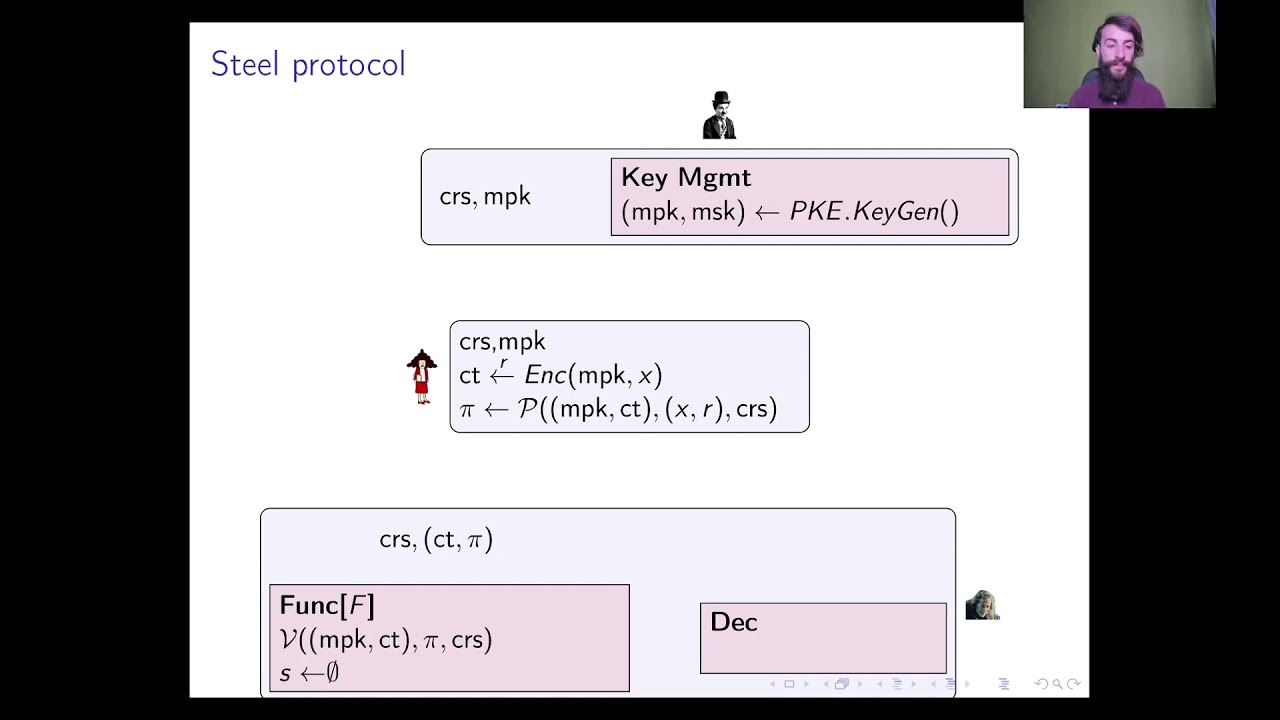Welcome to the resource topic for 2021/269
Title:
Steel: Composable Hardware-based Stateful and Randomised Functional Encryption
Authors: Pramod Bhatotia, Markulf Kohlweiss, Lorenzo Martinico, Yiannis Tselekounis
Abstract:Trusted execution enviroments (TEEs) enable secure execution of program on untrusted hosts and cryptographically attest the correctness of outputs. As these are complex systems, it is hard to capture the exact security achieved by protocols employing TEEs. Crucially TEEs are typically employed in multiple protocols at the same time, thus composable security (with global subroutines) is a natural goal for such systems. We show that under an attested execution setup G_\mathsf{att} we can realise cryptographic functionalities that are unrealizable in the standard model. We propose a new primitive of Functional Encryption for Stateful and Randomised functionalities (FESR) and an associated protocol, Steel, that realizes it. We show that Steel UC-realises FESR in the universal composition with global subroutines model (TCC 2020). Our work is also a validation of the compositionality of earlier work (Iron), CCS 2017) capturing (non-stateful) hardware-based functional encryption. As the existing functionality for attested execution of Pass et al. (Eurocrypt 2017) is too strong for real world use, we propose a weaker functionality that allows the adversary to conduct rollback and forking attacks. We show that the stateful variant of Steel, contrary to the stateless variant corresponding to Iron, is not secure in this setting and propose several mitigation techniques.
ePrint: https://eprint.iacr.org/2021/269
Talk: https://www.youtube.com/watch?v=nXctk6phhOM
See all topics related to this paper.
Feel free to post resources that are related to this paper below.
Example resources include: implementations, explanation materials, talks, slides, links to previous discussions on other websites.
For more information, see the rules for Resource Topics .
